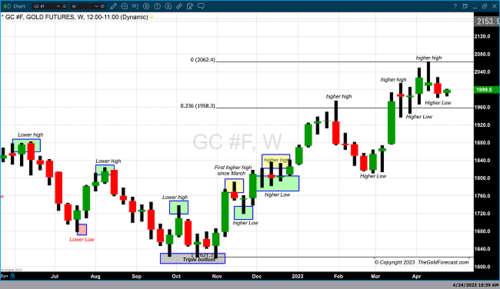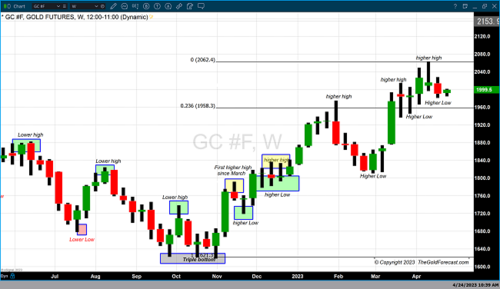
Info from Thursday’s GDP and Friday’s PCE report will guide investors
This week will contain two exceedingly important government reports on the US economy. These two reports will be exceedingly important in guiding the final decision of the Federal Reserve at the FOMC meeting next week.
Beginning on Thursday the Bureau of Economic Analysis (BEA) will release the Gross Domestic Product first quarter report. An average of the current forecasts is predicting that the first quarter GDP for 2023 will come in at 1.8%. If correct, this would indicate that the economy continues to contract from the 2.6% GDP that was reported in the fourth quarter of last year.
According to Saxo.com, “The advance reading of the US real GDP growth, scheduled to release on Thursday, is expected, according to Bloomberg’s survey of economists, to slow to 2% Q/Q annualized in Q1, down from 2.6% in Q4 last year. Despite inventory drawdown potentially dragging GDP growth, personal consumption is expected to come in strong at 4% Q/Q annualized and be the key driving force to sustain GDP growth in Q1.”
This will be followed by Friday’s Personal Consumption Expenditures (PCE) index, the preferred measure of inflation and wage growth used by the Federal Reserve. Economists polled by Bloomberg are predicting a moderate forecast for the core PCE to show an increase of inflation by 0.3% MoM and 4.5% YoY.
According to the same report by Saxo, “As rent-related components have a smaller weight in the core PCE measures than in the core CPI calculation, the core PCE may not benefit as much as the CPI counterpart from the recent weaknesses in rents. Investors will monitor closely the core service excluding housing sub-index in the PCE report to gauge the underlying consumer inflation trend in the U.S. Meanwhile, the headline PCE deflator growth is expected to slow to 0.1% M/M and 4.1% Y/Y in March from 0.3% M/M and 5.0% Y/Y in February.”
These upcoming reports and their forecasts have led investors to devalue the US dollar which in turn has added strength to gold prices. However, gold futures remain just under $2000 per ounce at the time of this writing.

As of 5:00 PM EST, gold futures basis most active June contract is up $8.10 or 0.41% and fixed at $1998.60. Gains witnessed in gold futures today have an exacting negative correlation to dollar weakness. Currently, the dollar is down 0.45% with the dollar index currently fixed at 101.095. Gold futures have traded to a higher low and a lower high than Friday’s strong price decline. On Friday of last week, gold futures broke below a critical technical and psychological price level of $2000 per ounce. As gold held above $2000 speculators and traders believed there was a strong possibility that gold would challenge the record of $2088 per ounce. Reciprocally, moves below that key technical level garnered speculation of gold prices dropping.
According to the CME’s FedWatch tool, there is almost a certainty (91.4%) that the Federal Reserve will end next week’s meeting with the announcement of a ¼% rate hike. Also, there is a 67.9% probability that the Fed’s terminal target rate will remain between 5% and 5 ¼% with the Federal Reserve not raising rates at the June 2023 FOMC meeting.
By
Gary Wagner
Contributing to kitco.com
David